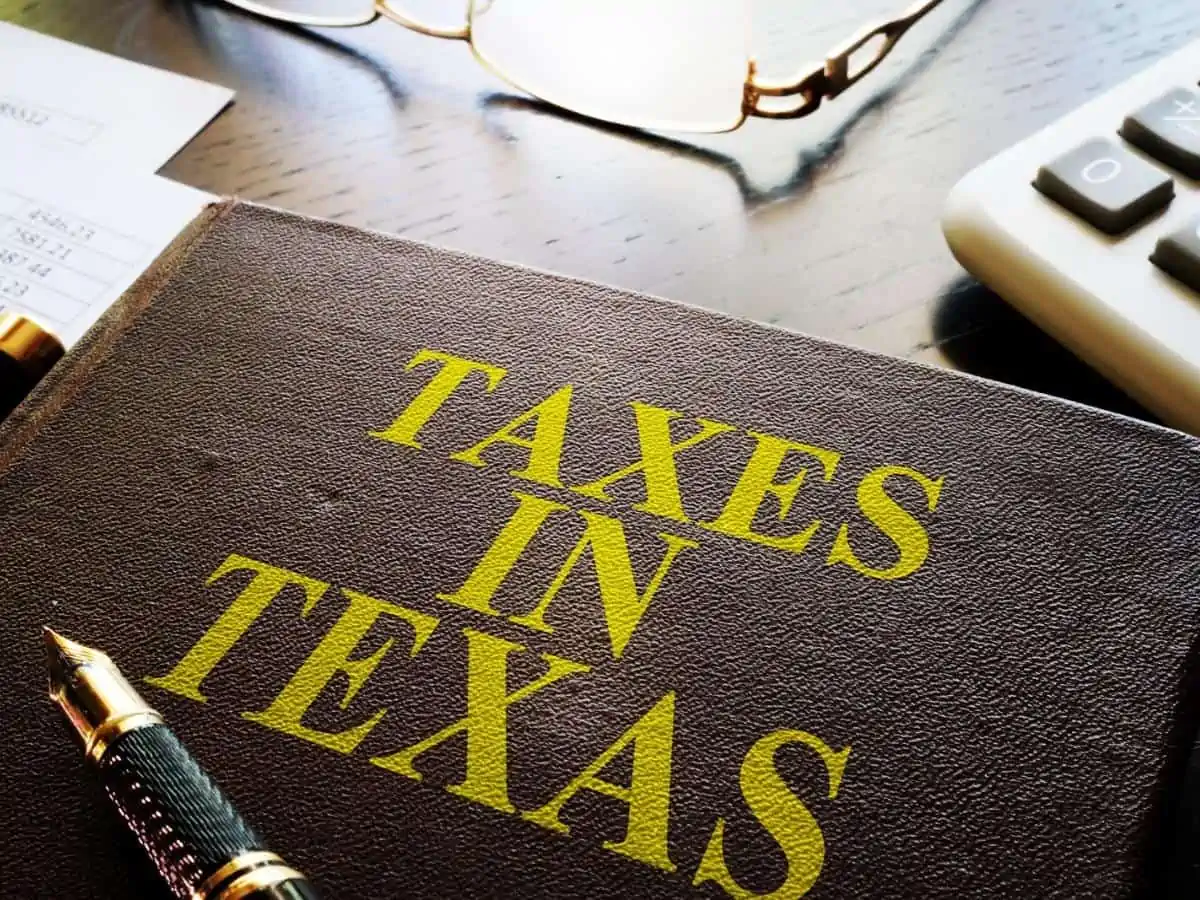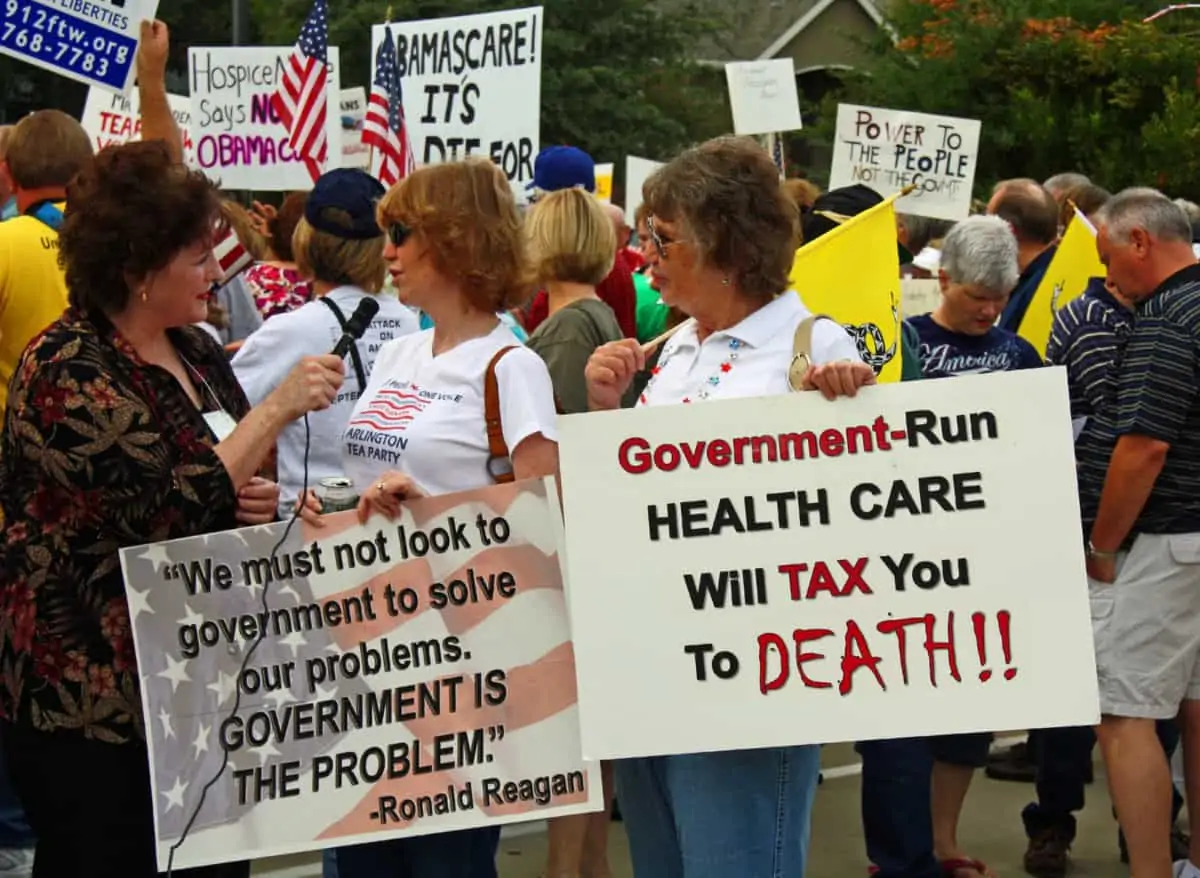Share the post "Texas Tax Talk: The Factors Behind the Low Rates"
While it’s true that our taxes don’t seem “as bad” as some of the more expensive states in the US (looking at you, California), Texas isn’t a low-tax state—not by a long shot.
To compensate for texas’ zero income tax, we pay extortionate amounts for property taxes and sales taxes. 44% of the collected local and state tax comes from property taxes, making Texas the sixth US state with the highest property tax.
In this article, I’ll shed some light on how Texas taxes work, including why property taxes make up most of our taxes.

How Are Texas Taxes So Low?
Those who live outside Texas believe that Texas is a low-tax state. With zero income tax, it’s an easy conclusion to make. But the truth is, Texas is the sixth highest-tax state in the US for low-income families.
Though Texas has zero income tax, the state has high property taxes, sales taxes, and excise taxes. The state derives roughly 50% of its tax revenue from sales and excise taxes, almost double the national average of 35%.
As for the property tax rate, it’s the seventh highest in the country at 1.80%. If your home in Texas is valued at $500,000, you must pay a personal property tax of $9,000 every year.
Other taxes include:
- Franchise Tax: Retailers and wholesalers must pay a franchise tax of ~0.375%. This figure can go up to 0.75%, depending on the total business revenue.
- Sales Tax: Citizens must pay an additional 6.25% in sales taxes. This figure is applied to everything purchasable, except groceries and medication. Some localities add 2% to their services, increasing the sales tax to 8.25%.
- Gasoline Tax: 20¢ per gallon
- Cigarette Tax: $1.41 per pack
- Hotel Tax: 6% of the price of your accommodations
Why Are Property Taxes So High In Texas?
In Texas, we homeowners pay about one-third more than the national average. According to recent reports, we’ve paid an estimated $73.2 billion in property taxes in 2021.
Why? The reasons are fairly straightforward:
Texas Revenue Almost Entirely Comes from Property Taxes
Texas is one of the nine states that doesn’t charge its citizens personal income tax, but this doesn’t come without a catch. To compensate for the lack of revenue, the local government takes most of its revenue from property taxes.
The money is then allocated to fund public services and resources, such as road maintenance, emergency services, public schools, and community safety measures.
Texas depends more on property taxes than almost any other state in the country, even more than other zero-income tax states like Alaska and Florida.
Property Values Are Constantly On the Rise
As you already know, property tax entirely depends on your home’s assessed value. The higher the home’s value, the higher the property tax. Housing market prices and sales continue to increase every year.
Though good news for those looking to sell their homes in the future, the same can’t be said for those with zero plans for buying or selling.
The substantial increase in annual taxation is a great burden to those who own properties in this state. Residential appraisals have increased a jaw-dropping 53% in Travis County, 15 to 30% in Harris County, 24% in Dallas County, 25% in Bexar County, and 20% in Tarrant County, and the list goes on.
These figures are expected to go up this year, the next, and the next.

Who is exempt from property tax?
Texas’s most common property tax exemption falls under the General Residence Homestead in Tax Code Section 11.13.
The Residence Homestead allows property owners to qualify for a reduction in property taxes. Those eligible include people with disabilities, veterans, charitable organizations, senior citizens above 65, and surviving spouses of first responders killed or fatally injured in the line of duty.
The exemption also covers the following properties:
- Uninhabitable or unstable residence
- Cooperative or manufactured housing
- Properties affected by disaster damage
- Properties with solar or wind-powered energy devices
Who benefits from no income tax and high property tax?
Unsurprisingly, the people who benefit most from no income tax and high property tax are high-wage earners and business owners. Most of the burden is placed on low-wage earners and the poor.
Wealthy residents pay less than 4.5% of their income in local and state taxes, as opposed to 17.2% for those with low incomes. This pushes families with less money in their name deeper into poverty, further exacerbated by our state’s lack of targeted tax credits for low-income workers.
Are there any future plans for reduced property tax?
Believe it or not, the state and local governments have already taken action to reduce or at least provide relief from the ever-increasing property taxes fees. Unfortunately, these efforts are hardly ever noticed by us taxpayers.
The Legislature can’t lower property taxes without severely damaging the state’s already scant public sector. And since property taxes are the main funding source for public education and road maintenance, we’re forced to either settle for high property taxes or witness the fall of the public education system and roads.
Even if the state government abolishes property taxes, it’ll still be replaced with something else.
If it’s any recompense, Gov. Greg Abbott has this to say about property taxes: “One of my top goals. This coming session will substantially reduce property tax, which will reduce the cost of doing business and the cost of living.” Take that as you will.
References
- Texas Property Tax Exemptions: https://taxease.com/texas-property-tax-exemptions-to-know-about/
- Tax Code Section 11.13: https://statutes.capitol.texas.gov/Docs/TX/htm/TX.11.htm
- Where Does Texas Get Its Money? https://www.dallasnews.com/news/politics/2020/01/09/with-no-state-income-tax-where-does-texas-get-its-money-curious-texas-investigates/
- Property Values Climbing, Property Taxes Continue to Increase: https://dallasexpress.com/property-values-climbing-property-taxes-continue-to-increase/
Share the post "Texas Tax Talk: The Factors Behind the Low Rates"
Christian Linden is a seasoned writer and contributor at Texas View, specializing in topics that resonate with the Texan community. With over a decade of experience in journalism, Christian brings a wealth of knowledge in local politics, culture, and lifestyle. He holds a Bachelor's degree in Communications from the University of Texas. When he's not writing, Christian enjoys spending weekends traveling across Texas with his family, exploring everything from bustling cities to serene landscapes.











